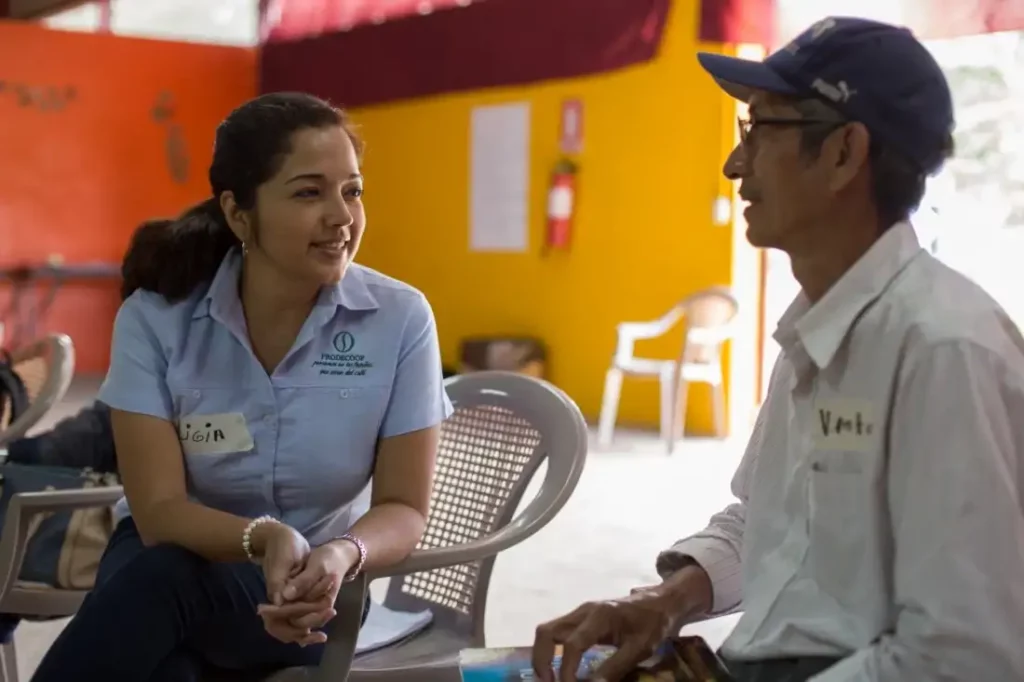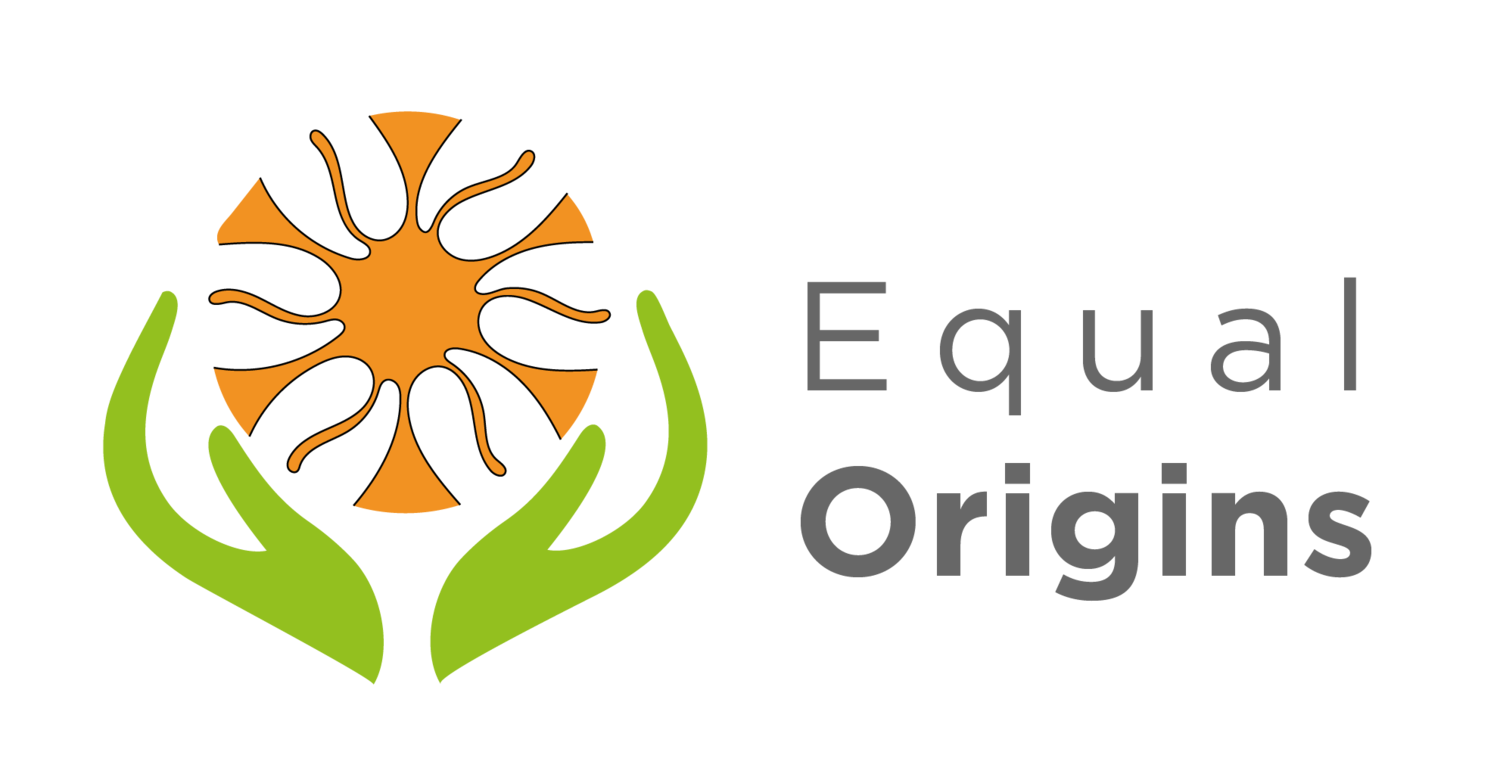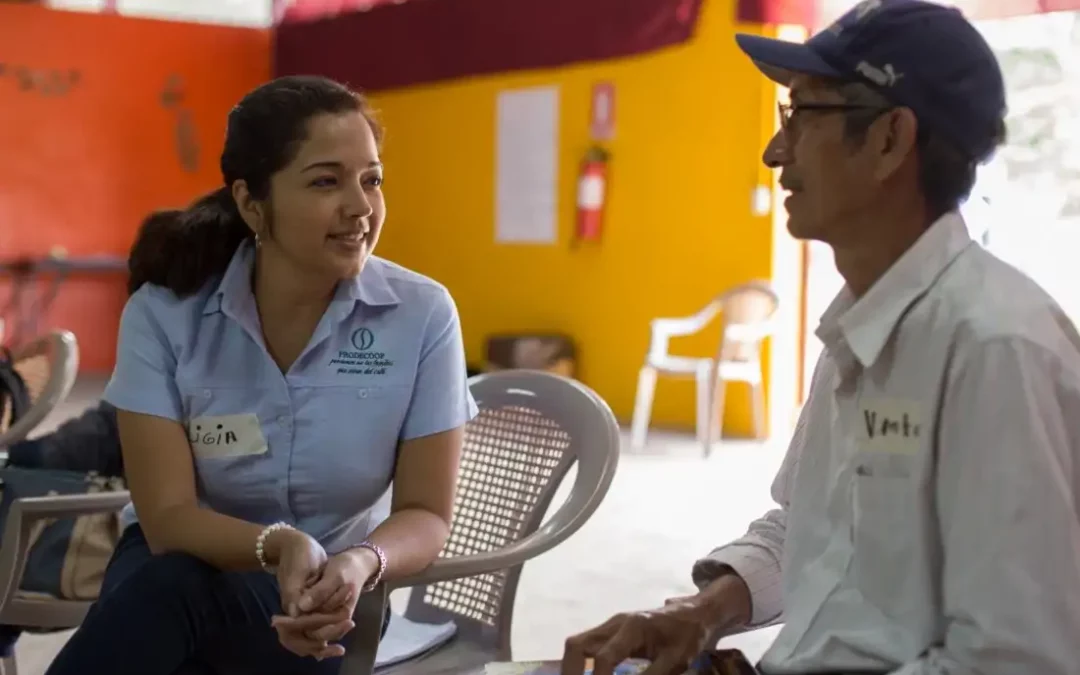
At Equal Origins, we have developed powerful strategies to support producer organizations through capacity-building programs which include the Gender Action Learning Systems (GALS). Since the onset of COVID-19, we adapted our work to include an additional approach called the Virtual Learning Journey (VLJ). The VLJ includes a diagnostic tool that producer groups utilize to focus their gender equality efforts to maximum effect. Both of these strategies and tools are transformative and are designed to support co-ops and producer organizations to design and make progress on their gender equity journeys. They are particularly helpful tools for roasters and exporters seeking to build gender equity capacity building within their own supply chains at origin.
This work with producer organizations is core and will continue to be core to Equal Origins’ work. However, in order to reach a scale necessary to meet the United Nations’ Sustainable Development Goal #5 by 2030, it’s clear that additional strategies are necessary. Equal Origins has partnered with leaders from the coffee and cocoa industries to develop such a strategy: the Gender Equity Index (GEI).
The coffee industry is spending over $550 million on sustainability work each year, much of it paying for various technical supports at origin that — in some way — contribute to “sustainability.” The primary service providers for these investments are often exporter/importers and various non-governmental organizations (NGOs) with boots on the ground providing agricultural extension (farmer training) and other advisory services. The GEI is a diagnostic tool for these service providers.to support them to embed gender equity within their programs and as a result, more effectively reach women.
The GEI will evaluate sustainability program design, implementation, monitoring and evaluation, internal capacity building, and other domains of gender equality necessary to achieve a regionally responsive “best fit” of gender-informed best practices for service design and delivery. From this diagnostic will flow recommendations to assist service providers with prioritization and capacity-building actions.
The goal of this initiative is to overcome the gender barriers related to information, technology, and skill transfer at origin, particularly those related to “Good Agricultural Practices” training, renovation and rehabilitation, financial literacy training, quality assurance training, and the various ways that producer families work to improve their farm’s profitability. No other variable in sustainability is more important than training. Yet, training is a productive resource that many women are denied because of gender norms, time burdens, travel constraints, and “business as usual” program design and delivery.
A service provider uses the diagnostic tool as the foundation to their journey toward greater gender equity. Year-over-year indexing provides progress evaluation for service providers. The GEI is also a teaching tool, providing a shared language and understanding of gender equitable capacity building at origin. Through this tool services providers will build their understanding of concepts like “gender aware,” “gender-informed,” “gender-responsive,” and “gender-transformative” programming.
Benefiting roasters with sustainability portfolios, the GEI is also a gender equality due diligence tool. Before investing in a project, roasters will ask service providers to complete the self-assessment, opening the door to conversations about how well women will be served. It’s also a communications tool for roasters, giving them the specific language for communicating to their customers exactly how their sustainability projects have been designed and implemented with women’s needs prioritized.
Partners involved in the initial development and launch of this tool have contributed between $5,000-$25,000 each, as well as a representative to support the industry-led GEI development committee: Lavazza, Barrie House Roasters, Caravela, Lutheran World Relief/Mocca, EFICO, Jot, Paulig Group, 4C, and ECOM.
Concurrently, Equal Origins has partnered with the Women Forward International, and Yale University’s Jackson School of Global Affairs to leverage a team of student researchers to investigate the current state of gender equity capacity among agronomic extension (farmer training) and other advisory services providers.
Equal Origins’ goal is to begin validating the GEI among services providers in Q4 2021 and to have a finalized tool broadly available in 2022.
The GEI initiative marks an important milestone for Equal Origins and for the coffee and cocoa sectors. The pre-competitive cooperation seen here is encouraging and truly commendable. Further, the willingness to move beyond individual supply chains toward broad support for gender equality capacity building is evidence of the broad acceptance of the importance of gender equity within the wider context of sustainability and producer family resiliency.
The road to achieving gender equality is a journey for us all. The importance of embarking on such a journey becomes increasingly evident as we grow in our understanding and awareness of the impact of biases, beliefs, cultures, and religions. For that reason, the GEI is not a certification. As many of us who have worked in this space understand, “gender equality” is not a condition that can be evaluated with binary yes or no answers. The presence of a GEI score will indicate, however, that a service provider is on a gender equity journey, and it will provide the basis for productive conversations about investments and incremental improvements being made over time.
Supply chain managers know there is a hidden workforce embedded in many agricultural commodities, and that women are providing much of that labor. The industry knows that reaching this hidden workforce will require additional resources and concrete action plans. The Gender Equity Index provides the roadmap for action and details how the industry should prioritize and execute these plans.
Though the road to gender equality remains a complex journey with many interconnected variables and dimensions, one of the strengths of the GEI is its focus — it is designed to achieve specific outcomes within the scope of a much broader subject.
Education and technology transfer are productive resources that must reach and include women for any sustainability initiative to realize its full potential. Many coffee and cocoa companies are rolling up their sleeves and contributing their time and resources to PGE in support of this effort. They are among the heroes in this story.
Read more about the GEI here.
Watch this powerful clip introducing the GEI:

